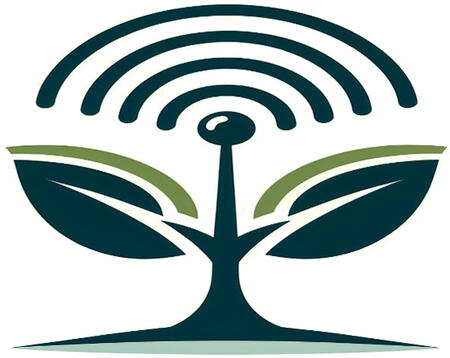Cultivating Prosperity for the Filipino Farmer
Agriculture in Crisis
The Philippine agriculture sector is currently facing a significant crisis, marked by a series of challenges that threaten its sustainability and productivity. Among the problems are declining farm productivity, aging farmer demographics, and inadequate infrastructure. A substantial portion of the rural population lives in poverty, with many farmers unable to secure fair prices for their produce due to inefficient market systems and middlemen exploitation.Additionally, there is a lack of access to modern agricultural technologies and insufficient government support, further exacerbating the sector's struggles. This combination of factors highlights the urgent need for comprehensive reforms and innovative solutions to revitalize Philippine agriculture.
Cooperatives: An Unfulfilled Promise
Agricultural cooperatives have long been advanced to overcome the lack of scale of small farmers, but they have largely failed to produce significant gains due to a combination of factors. Cooperatives often hire management among their own ranks of farmers who often do not have the training needed. Poor management and lack of professional leadership often result in inefficient operations and financial mismanagement. Additionally, many cooperatives struggle with inadequate capital and limited access to markets, which hinders their ability to scale and compete effectively. Corruption and internal conflicts further weaken these organizations, eroding trust among members and reducing overall effectiveness. Moreover, government support and policies aimed at strengthening cooperatives have often been inconsistent or insufficient, preventing these entities from realizing their full potential and delivering tangible benefits to their members.
About AGRID Management Corp.
We partner with small farmers so that they can access the resources and support needed to prosper despite difficulties. We do this by combining old ideas with new technologies: new ways to train famers, uncover valuable data and insights, give feedback and guidance.In this age of data driven farming, planting and harvesting abilities are not enough. We give farmers new understanding of their fields by putting the AI directly in their hands, and not just on drones that fly way above the actual soil where crops grow.AGRID means "agriculture by grid" which entails subdividing large fields into smaller, precisely defined grids. This allows managers to track soil quality, crop yield history, and other critical factors at a granular level, ensuring that every part of the field receives precise care.We can help farmers target the best inputs to maximize productivity and understand the soil data that they collect through the tools that we give them.Our dedicated community-based broadband network infrastructure, called the Data-Kubo Network, creates a “shared economy”. By enabling farmers to share their equipment, time and labor with each other more efficiently than ever before possible. The network also enhances the ability to obtain the best priced inputs.
Financing - The Most Important Input for Farmers
By making the risk and rewards of small farming transparent to the banking industry, our goal is to bring affordable financing to the Filipino farmer, which is the most needed input of all.
Geospatial Awareness of Each Farmer's Land
The first step that we do for our farmers is to create a geospatial survey of their field. Creating a geospatial survey of a farmer's land is crucial for maximizing productivity and minimizing input costs.Soil is every farmer’s most important asset. We use SOOKIT, our own technology that runs on a mobile phone, to create the cadastral perimeter of the field. By walking around the perimeter of the field while using our GPS-enabled technology, the farmer is able to create an accurate map of his field, as well as an understanding of how it relates to the fields of other farmers.Combining this map with GIS information, we can understand elevation and water sources which are critical for crop planning. By leveraging geospatial data, farmers have the foundation to implement precision agriculture techniques, which allow for the targeted application of water, fertilizers, and pesticides.This precision reduces waste, lowers costs, and minimizes environmental impact. Additionally, geospatial surveys help identify areas of the land that may require more attention or are underutilized, enabling farmers to optimize their land use. With these insights, as interpreted by our experts who can guide farmers remotely, farmers can make informed decisions about crop rotation, irrigation planning, and resource allocation, ultimately enhancing yield and sustainability.
Soil and Yield Mapping
Historically, small farm operations in the Philippines have been opaque to anyone outside of the farmer’s household. Farmers were left on their own devices on what, when and how to plant, apply fertilizer, pesticide and schedule the harvest. This made it difficult for formal lenders such as banks to trust the financial management of farmers. Farmers had no choice but rely on local informal lenders and middlemen for financing, who often extracted exploitative terms.By making every small farm operations fully transparent, we are confident that we can make formal lenders such as banks comfortable with the risk and rewards of lending to small farmers, thereby bring more affordable financing to them. Transparency starts with understanding the condition of the soil.
We start by working with the farmer to measure and monitor the quality of every square meter of his field. The variability of soil quality within the field can be significant, with different areas exhibiting distinct characteristics in terms of texture, organic matter content, pH levels, and nutrient availability. Factors such as past land use, crop rotation, irrigation patterns, and natural landscape features can all contribute to this heterogeneity.Monitoring the condition of the soil is crucial for optimizing crop production and ensuring sustainable farming practices. Regular assessments of soil nutrient content—specifically nitrogen (N), phosphorus (P), and potassium (K)—along with moisture levels, enable farmers to tailor their management practices to the specific needs of different field zones.This can involve adjusting fertilizer application rates, improving irrigation efficiency, and implementing targeted soil amendments. By doing so, farmers can enhance plant health, increase yields, and maintain soil fertility over the long term, ultimately supporting both economic viability and environmental stewardship.
Farms in advanced-farming countries such as Australia use sophisticated electronic and optical sensors to constantly monitor soil health. But because those farms have few laborers, they use robots and drones to deploy the sensors. Instead of wholesale copying of practice in those countries, we have developed our own system to capture data on soil condition by putting sensors on farmers’ hands, not on drones. We call this the SOOKIT system.
But our proprietary technology doesn’t just monitor the soil; it also covers what grows above the soil. By putting artificial intelligence on farmers’ phones, which we provide to them, farmers will be able to automatically count the number of crops growing on every square meter of land on their field. Farmers will be able to do this by simply walking through the row of crops and pointing the camera to scan the crops using the SOOKIT app. This data can then be uploaded to our servers through the Data Kubo Network, where it can be shared with contract buyers and banks.
Data Kubo Network
Filipino farmers have been unable to benefit from the support of a large organization, unlike white-collar workers who enjoy that support even though they work from home. Access to internet is slow or unavailable for most farmers. Access to the electric grid is also a challenge for many.To provide the best support for our partner farmers, our agronomists need to receive and interpret actionable data from distant farms, collected by farmers themselves through mobile computing devices that we provide to them. Farmers also need timely and frequent consultations with our managers who work across the country. None of these needs can be met without broadband connectivity.
To meet these needs, we plan to create a private network, called the Data Kubo Network for the benefit of our partner farmers. This network will be a collection of rural cabins, each acting as a data access point but which can also serve as a mini town hall, evenly spread across the countryside so that each of our farmers can travel to one Data Kubo from his farm by walking a distance of no more than one kilometer.Data Kubos will be self-sufficient because it can obtain power through solar panels. Broadband connectivity can be provided by whatever means available such as fiber cables strung along electrical tranmission lines, point-to-point relay transceivers or most commonly, through low earth orbit satellite service such as Elon Musk's Starlink.
The Data Kubo will be the means by which farmers can upload data collected by them, attend live meetings conducted through web conference and interact with fellow farmers.The Data Kubo Network will allow our company to hire the best people in the Philippines or beyond, without being limited to the local pool of talent, which is scarce in rural communities.
The internet has also revolutionized the teaching of new skills and knowledge. E-learning has become the most cost effective way to teach new skills to students around the world.The Data Kubo Network can provide the infrastructure to deliver e-leaning in the form of how-to-videos for our farmers to learn the best practice for their crops as well as how to best use the new tools that we provide to them.Our company plans to invest substantial resources in producing such quality content in Filipino dialects best suited to each partner farmer.
The Team

Renan Paglinawan
CEO & CTO
- AB Economics Honors Program, ADMU
- MBA, Wharton School

Gianne Barile
CHIEF AGRICULTURIST
- BS Agriculture (Plant Pathology) UP Los Banos
- Licensed Agriculturist

Issa Penales
MARKETING & TRADE
- BA International Studies, DLSU
- Marketing & Business Planning, ADMU-GSB
- Post-Harvest Business Manager

Carlo Tansuk
OPERATIONS, ADMIN, FINANCE
- BSc Industrial Management Engineering, De La Salle University
- MSc Innovation and Business, AIM

Antonio Fontanilla
AREA AGRICULTURIST
- BS Agriculture (Soil Science) Don Mariano Marcos Memorial University
- Licensed Agriculturist
- Certified Trainer

Marcelo Espiritu
SENIOR AGRONOMIST
- BS Agriculture (Agronomy) UP Los Banos
- Licensed Agriculturist
Contact Us

AGRID MANAGEMENT CORP.
100 Roxas Blvd, Suite II-604
Parañaque City 1701
PHILIPPINES
